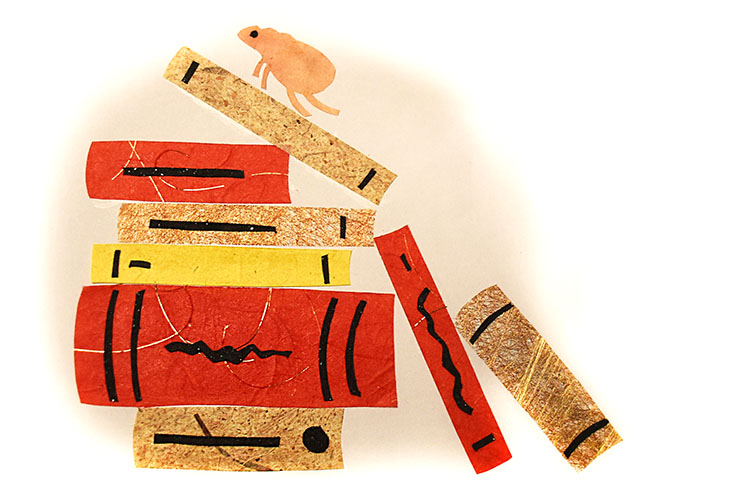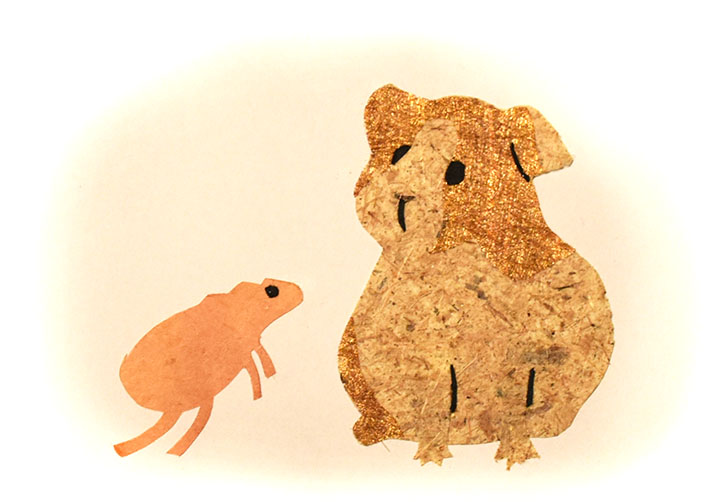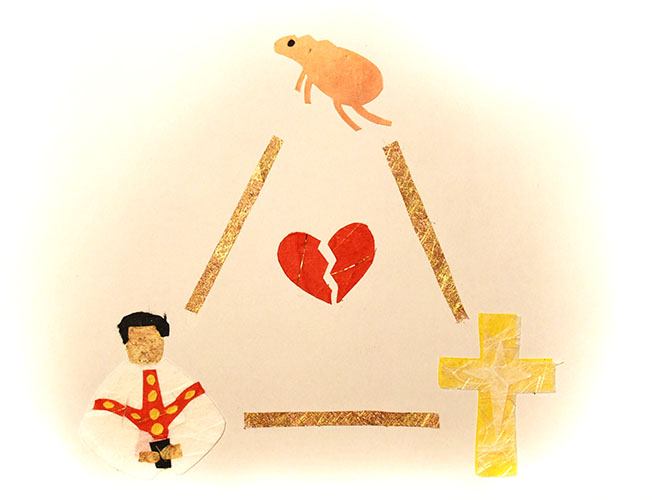I don’t watch TV. A big contributor to my joy at becoming single three years ago was the option to read a book rather than watch tv with my ex at night. There is no better distinction between tv and books than the fact the former can be consumed with other people, while the latter demand solitude. My introversion grows with the years, and I mostly eschew TV these days; in part, because reading feels more introverted — all the voices are in my head rather than my home. Lately, I cull my friend-verse by focusing on the ones who want to talk about what they’ve read rather than watched.
Yet the occasional show reels me in — if I’m lucky, maybe one a year. I Love Dick floored me; released when I was newly single, it reassured me that the change in my gynecological status (you know, when your doctor asks the “sexually active?” question that feels nosy and doesn’t seem to have a right answer) was temporary, because — guess what?! — all kinds of women (and non-binary genders) were having all kinds of sex, including epistolary. A couple of years later, I stumbled onto the first season of Fleabag, which hooked me with different bait — the titular character, so wicked that she drove her best friend to suicide, was also so clever that I wanted to be her new bestie, despite the clear occupational hazards of the role. The reviews leading up to its second season tantalized me — there was a priest! And a wedding! And merch! (A boob-revealing black jumper, Marks & Spencer cans of gin and tonic). I spent a half-hour early in May trying to find it, only to discover that it wasn’t dropping on Amazon Prime until May 17th. My lust for it felt like a sin, a betrayal of the tower of books on my bedside table.
When Fleabag Season Two finally hit my screen, I rationed it like the best kid in the marshmallow experiment, watching in doubles because I could not bear watching a mere half-hour at a time (so not the BEST kid, but surely the top tier). I made it last a month, with three discrete viewing sessions. Over the course of those three hours, I grew increasingly stalker-ish in my feelings for the show’s star and creator Phoebe Waller-Bridge (PWB to those obsessed with her). My season one admiration had escalated by the final episode — that last look back at the audience, quick headshake, and departure from my life forever — to something restraining-order-worthy. How does this woman GET me, I kept whisper-moaning to the screen of my iPad — the only screen I trusted to get this show right for me. I needed to watch it inches from my face.

Fleabag and I are unlikely BFFs. She is in her fertile 30s; I’m peri-menopausal, pushing 50. She lives in London; I live in a small US city. I’m a soccer mom; she has a guinea pig. I’m a money manager with a running addiction; she’s a struggling café-owner in a perpetually hungover state. She has sex with lots of men; subsequent to separating from the father of my child, I am celibate (now proudly proclaiming “No!” when my doctor asks if I’m sexually active). If anything I identify more with Fleabag’s big-career sister Clare, who is trying to get pregnant with her socially maladroit husband Martin (in fact, my ex’s name is Martin, although happily the baby-daddy resemblance ends there).
So I wouldn’t put Fleabag in the category of, say, Eat, Pray, Love (EPL). The publication of EPL coincided with my Elizabeth Gilbert stage of life: single, childless, mid-30s, questing. Presumably many women have such a phase, one they look back on (from their next phase, perhaps a Rachel Cusk era of new motherhood and career sacrifices) with a mixture of embarrassment and nostalgia. In a predictable cliché, I read the book on vacation in Bhutan, where I fell briefly in love with a strapping young Bhutanese guide who delighted in overnight treks to escape his infant daughter and exhausted wife, and I visited a fertility monastery as I contemplated conceiving my own child with anonymous, expensive, frozen sperm (or, possibly, the Bhutanese guide). I was a poor woman’s Elizabeth Gilbert, someone dipping her toe in the ocean of adventure, passion, and — well — reckless abandon into which the writer flung herself, with no life raft other than a book contract. (No small thing, as I have come to find out, but a smaller raft than I would have required to part ways from my cushy, overpaid job).
I was in the exact right place and time for EPL — but lots of friends haven’t enjoyed it as much as I did. Women my mom’s age, grandmothers settled into comfy retirements punctuated by weekly golf games with their husbands, raved about the book. Gilbert’s female Odyssey to find her home, her self, captivated women across generations. With the benefit of hindsight, I am more nuanced in my idolatry of EPL and its author; the book now shares space with Atlas Shrugged, which I’ll only admit to reading in college, and Lean In, loved and later debunked by a combination of personal and Sheryl Sandberg-specific circumstances. It’s not (only) that Gilbert left the man who rescued her (although not before writing another book about the merits of marriage based on their idyllic relationship). It’s that I have come to view the book, not as an odyssey, but just another goddamned marriage plot, the umpteenth Jane Austen remake with a sassy protagonist which culminates in a good match.

EPL provides a template for “target audience” that is much broader than the outline of the lead character herself. Fleabag shows those of us putatively with our shit together our reflection in the face of an emotionally disheveled woman. Fleabag, c’est moi: hard around the edges, wickedly funny in a way that occasionally hurts people (although mostly is for my own benefit, or that of the invisible camera following me around), worried that I am unlikeable, in fact frequently unlikeable, and — as her addled dad points out in a rare moment of clarity — capable of tremendous love.
In season two, Fleabag’s search for meaning lands her in a love triangle with a priest (granted, a hot, “sweary” priest, as far from the asexual pedophiliac version as you can get) — and God, who shows no signs in His portrayal on the show of being anything other than a traditional male deity. There is a hilarious scene at Quaker Meeting — my faith home of choice these days — in which Fleabag is moved by the Spirit to cast aspersions on her feminist credentials. I wish I felt so moved in the soporific Asheville Friends Meeting House.
Spoiler alert: the holy triangle eventually folds in on itself to force Fleabag out. The priest chooses God (the good ones usually do), and bids our heroine farewell with an “I love you too” and “This will pass.” We know he is right; and, we know this is the only honest ending for the series. It is a measure of my trust — or, shall we use that freighted word, faith? — in PWB that even in the first scene of the season — when a bloody-nosed Fleabag assures us, “This is a love story” — I know that it can’t be, because there is no such thing as a love story. Fleabag is an anti-marriage plot, and also an anti-odyssey. It doesn’t end — just as our life journeys do not end until death do us part from them. Call it a reality narrative (leave plot, with its suggestion of a formula and ending, out of it), which shows us one person’s messy life and allows us to laugh and cry along with her in her attempts to address her messes, which, while not identical to our own, elicit universal emotions: shame, grief, schadenfreude, anger, love, lust.

The morning after I finish watching Fleabag (and dream about it after a half hour of sobbing over the priest’s choice), I hear someone named Richard Rohr talking to Krista Tippet about how hard it is for men who don’t have good father figures to embrace Christianity because it is a distinctly male theism. And I make the final connection to Fleabag — that she is not just looking for her man, but also for her (presumably male) God. Like me, Fleabag is unmanned — the term I use for my current life chapter. Fleabag has lost her father to marriage; the priest and the inklings of God she saw through him are gone as well. My split with my ex coincided with my father’s death; I lost half of my son to joint custody; even my ex’s dog was male. I went from swimming in a pool of testosterone to a desert.
I could use a good, old-fashioned, male God to offset these losses, but when I mouth the words of the Lord’s Prayer, I might as well be talking about my own father (who, presumably, art in Heaven). These days, unmanned, I have to find my own worldview. This might include a God; although I am duly unmoved, intellectually speaking, by the prospects for one, I have come around to David Brooks’ view that, in its best form, religion does a lot of work for people by providing “creeds that have evolved over centuries.” (Secularists meanwhile are painfully sweating the details of their reinvented wheels of moral code.) I have come to understand my newfound longing for faith, which I manifest by listening for (not, sadly, to, not yet) God at Quaker Meeting, as a longing for something to replace the men in my life.
At the end of Fleabag, we don’t know what she will do next. Go find God? Go fuck that lawyer who gave her an almost-uncomfortable nine orgasms in one encounter? Get herself to a nunnery? (Either version?) I’m not sure what I’ll watch next, either. (The next season of Better Things, another exception to my book-trumps-tv rule, won’t be out for a while). I might just continue to ponder Fleabag, and delight in the company of her unmanned misery.
Or I might get up my courage to write a letter to my idol, something along the lines of:
Dear Phoebe Waller-Bridge,
Will you come find God with me?
With love and respect,
Your biggest fan, “Unmanned” •




